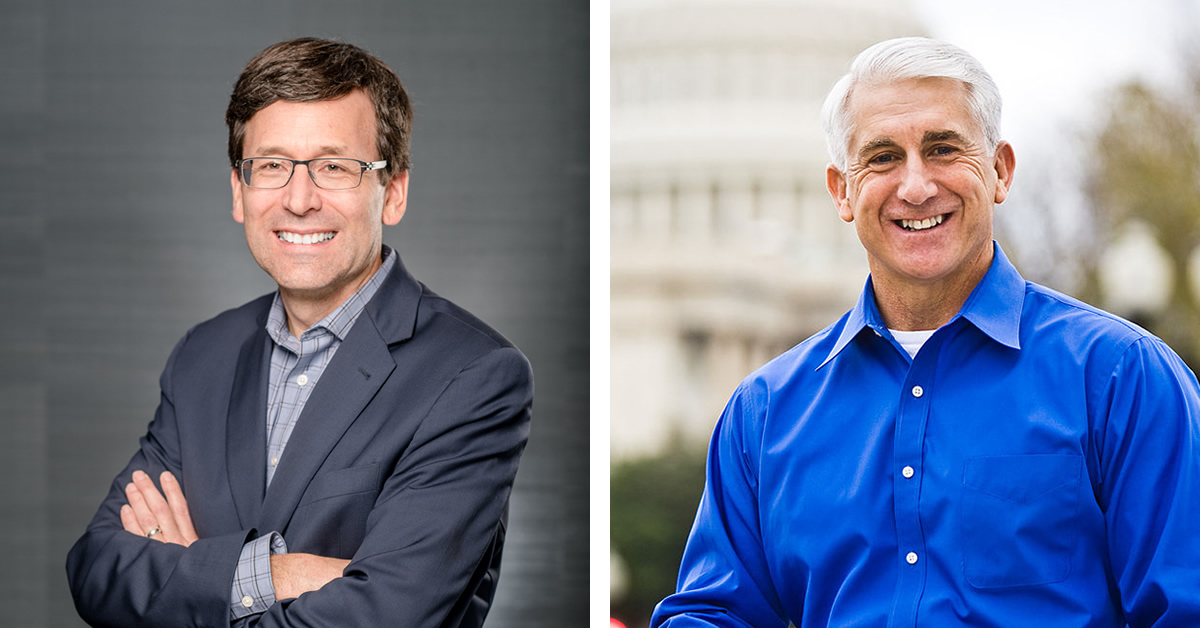Longtime Washington State pollster Stuart Elway released a second round of electoral-related findings from his December 2023 survey of the Washington State electorate today — findings which correlate NPI’s previous research suggesting that the 2024 Washington State gubernatorial race is competitive.
In partnership with Crosscut, Elway surveyed 403 registered voters in Washington from December 26th-28th, 2023. 116 took the survey via landline with live interviewers, 149 took the survey via mobile telephone with live interviewers, and 138 took the survey online using a link texted to them. 43% of the respondents are classified as Democrats, 32% as independents, and 25% as Republicans.
Asked about this year’s gubernatorial race, a total of 37% of the respondents said they either intended to vote for Democratic frontrunner Bob Ferguson, or could vote for him, while a total of 31% said they either intended to vote for Republican frontrunner Dave Reichert, or could vote for him. Smaller numbers of respondents said they intended to vote or could vote for Democrat Mark Mullet and Republican Semi Bird — Ferguson and Reichert’s main competition for the position.
Survey takers were not asked a traditional horse race question (i.e. if the election were being held today, who would you vote for?) because Elway felt with the election being so far away, an unconventional approach was warranted.
Elway’s gubernatorial question went like this:
QUESTION: There are currently four candidates who have announced their intention to run for Governor. The election is almost a year away, but for each candidate, indicate – as things stand today – whether you: 1) Intend to vote for him; 2) Could vote for him; or 3) Will not vote for him for Governor. If you are not familiar with the candidate, just indicate that.
These were the answers, as graphed by Crosscut:
Elway also asked respondents which party’s candidates they were inclined to support in legislative elections. As with the gubernatorial contest, a question with more than three answer choices was presented to respondents:
QUESTION: There will also be elections for State Legislature. You will be asked to vote for two state representatives and perhaps a state senator, depending on your district. As things stand today, in the races for the state legislature in your District, are you likely to vote for:
ANSWERS:
- All Democrats: 24%
- Mostly Democrats: 26%
- Mostly Republicans: 17%
- All Republicans: 17%
- Don’t Know Yet: 16%
In total, 50% said they were inclined to vote for all Democrats, or mostly Democrats, and 34% said all Republicans or mostly Republicans.
There was also a question about who should control state government:
QUESTION: Democrats have held the governor’s office since 1984, have had the majority in both houses of the state legislature since 2018 and now hold all eight of the statewide elected offices. Which of these election outcomes comes closest to your opinion about the coming election:
ANSWERS:
- It is important that Democrats keep control state government: 22%
- It would be better if Democrats keep control of state government: 17%
- It would be best if state government control was divided between Republicans and Democrats: 25%
- It would be better if Republicans took control of state government: 10%
- It is important that Republicans take control of state government: 18%
- No opinion: 7%
A total of 39% expressed a preference for continued Democratic control. 28% expressed a preference for control to shift to Republicans.
25% would like divided government, meaning a Legislature in which one party controls one chamber and another party the other, or a governor from a different party than one or both chambers of the Legislature. 7% had no opinion.
These legislative findings suggest an edge for Democrats, and are consistent with what we saw in our generic ballot polling last cycle and the actual election results, which yielded strong and slightly expanded Democratic majorities in what many pundits had claimed was going to be a “red wave” year.
As a questionnaire designer myself, I think the electoral questions above are unnecessarily complex. I understand Elway’s desire to capture the nuances of public opinion, but asking follow-up questions could have served that purpose.
I’m especially perplexed by the answer choices in the third question (it is important versus it would be better if a particular political party controlled state government). That’s not a scale that makes sense to me. Why not just ask respondents who they want to see in control of the Legislature: Democrats or Republicans? (This, incidentally, is what NPI does in our statewide polls).
In November, NPI found Dave Reichert and Bob Ferguson tied in a four-way race and nearly tied in a hypothetical head-to-head, with Reichert holding a slight, two-point lead over Ferguson. This finding got a lot of attention. It was the most-read Cascadia Advocate post of 2023, and has been mentioned in a lot of media coverage since then, including a Politico article last month.
Elway’s data is another bit of evidence indicating that it’s a close race, at least as things stand now. Reichert has been running a fairly low-profile campaign thus far, coasting along on his name recognition, while Ferguson has been focused on raising money, scooping up endorsements, and laying groundwork.
Later this year, the candidates and their allies will begin spending a lot of money to communicate with voters. We will see to what extent the dynamics change as voters hear more from and about the gubernatorial candidates.

